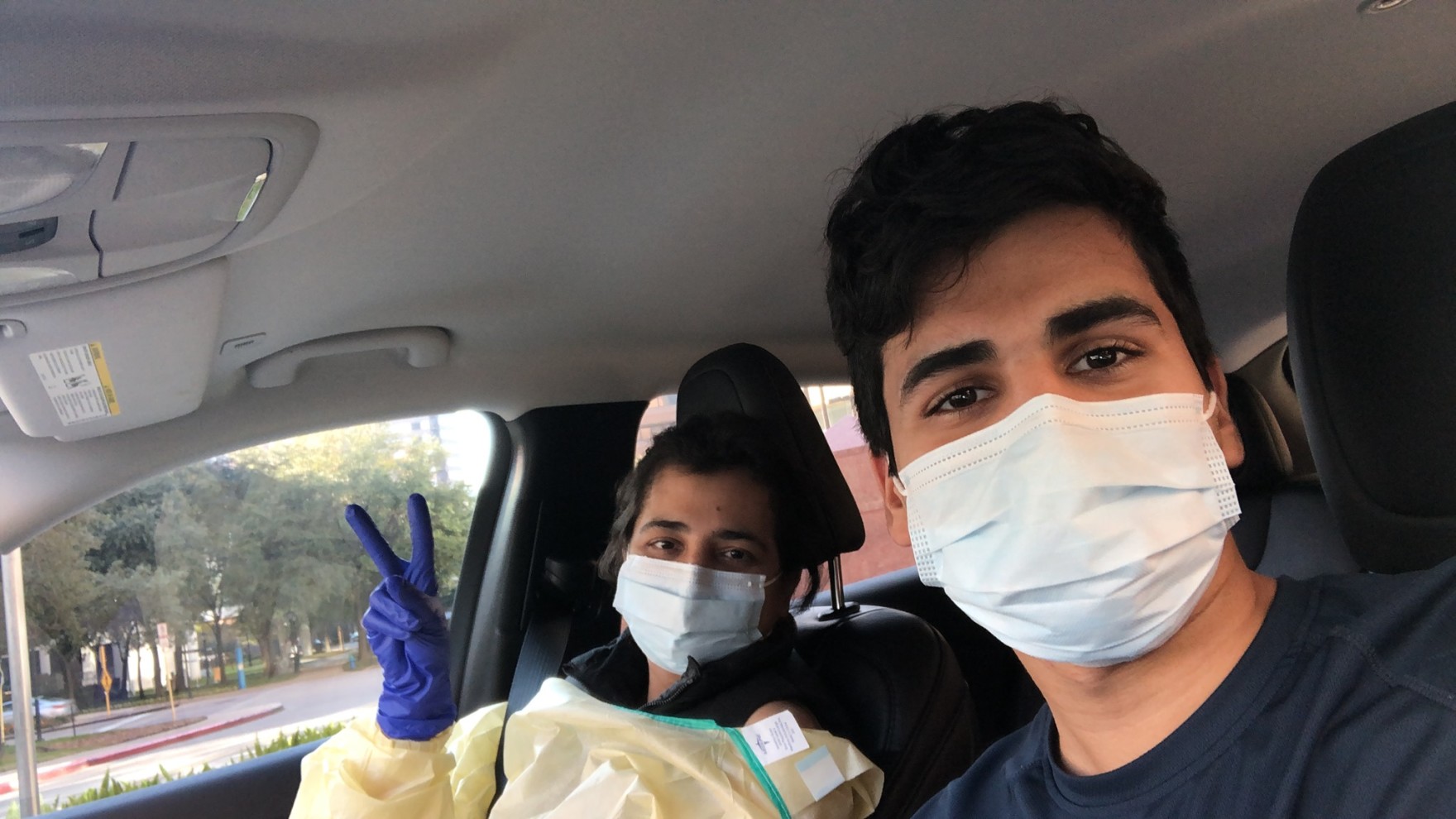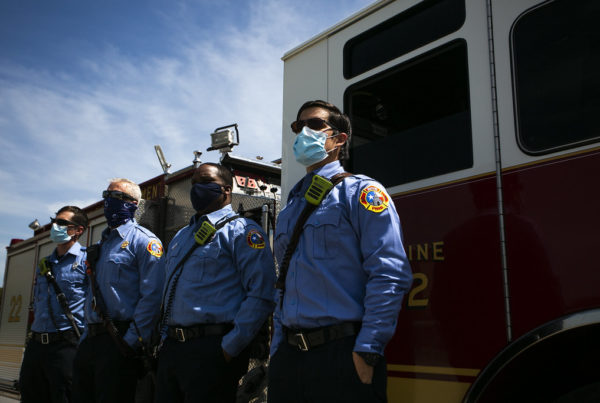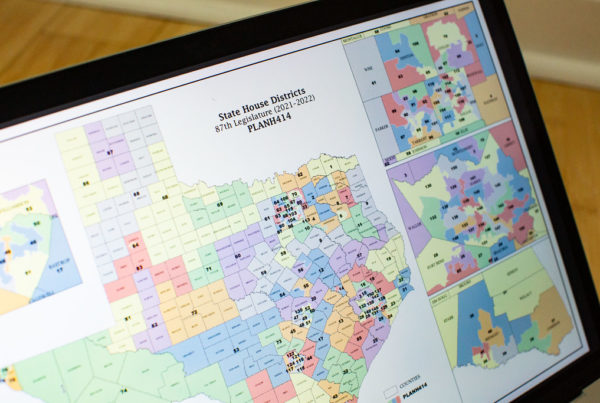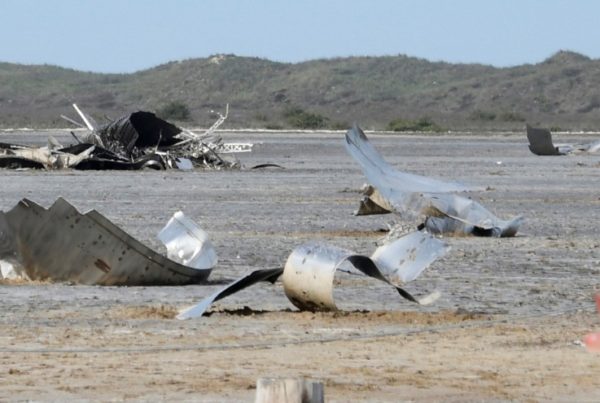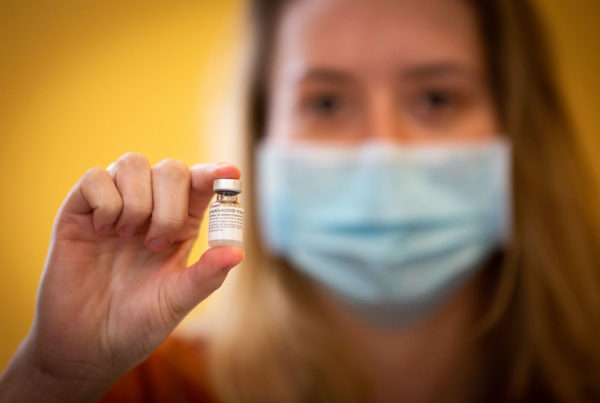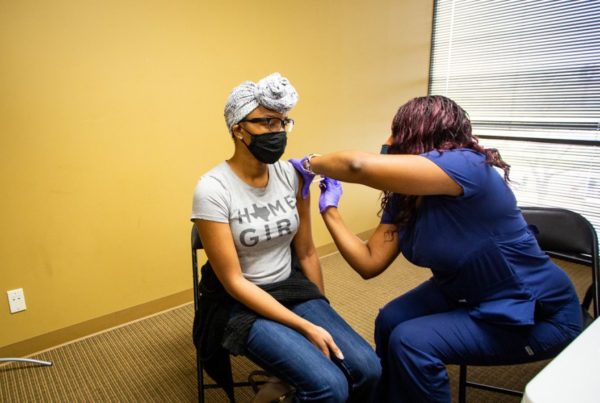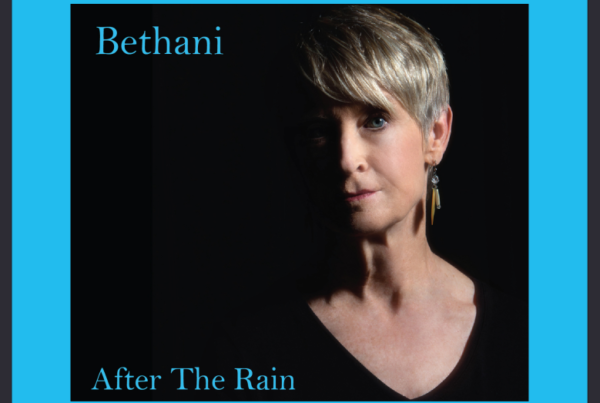The night before Yusuf Khan’s high school graduation, he overheard a phone call.
“I was up at night and was walking down my hallway and heard my stepdad on my phone and said out loud leukemia but he was whispering, I guess and they didn’t want to tell me,” he said. “The next day my mom wasn’t at my graduation.”
Khan’s mother, Nadia Shaik was diagnosed with leukemia in 2017.
Her doctors said she would need a bone marrow transplant within the year to save her life — but finding a donor match wasn’t easy.
“At the time she did not match with anyone on the national bone marrow registry,” Khan said.
It’s estimated that, at any given time, around 7,500 people in the U.S. are looking for a compatible bone marrow donor. For blood cancer patients, finding a match can be the difference between life and death.
The Texas legislature just approved a bill designed to get more Texans — especially people of color — registered as potential bone marrow donors.
Khan, now a senior at the University of Houston, testified in favor of House Bill 780 before the Texas House Public Health Committee earlier this legislative session, detailing his mother’s experience with the bone marrow registry.
“After six months of trying and failing to find a matching donor through hosting dozens of registration drives, I was forced to donate my marrow to her despite only being a partial match,” Khan said.
Khan’s donation helped, and now his mother is recovering.
“I tell you my mother’s story because this is not the reality for tens of thousands of people each year,” Khan said. “People are dying because they cannot find a matching donor and do not have family members that match them either.”
Finding a match depends on your human leukocyte antigen (HLA) markers, which are proteins found on your cells. The best chance of finding a donor match lies within a patient’s same race or ethnicity.
This is something Yusuf Khan stressed to lawmakers.
“For blood disorder patients like my mom who are an ethnic minority, the chances of a good marrow match are especially low,” Khan said.
According to national bone marrow donor program Be The Match, white patients nationwide have about a 77% chance of finding a match, compared to Black patients nationwide who have about a 23% chance.
HB 780 would create a statewide recruitment program for bone marrow donors, emphasizing the need for a diverse donor pool.
That outreach is vital, said Joey Booker, who’s been a donor in the past. He’s Black, 27 and lives in Austin.
Booker said one reason for low donor registry in the Black community is historic mistrust for the government and medical field.
“Our past history is something that has been so, so difficult that trying to move forward is hard,” Booker said.
Booker called HB 780 a great idea, and Be The Match Health Policy Manager Ellie Beaver said it’s already been successful in another state.
“Washington State has passed a similar bill where they’re notifying everyone who’s renewing their driver’s license that there’s this possibility to join the donor match registry,” Beaver said.
Khan wanted to bring the idea to his home state.
“I immediately was like that is the greatest idea I’ve heard. I don’t know why any other organization has taken the initiative and done this yet,” Khan said.
In early 2020, he contacted his State Rep. Dr. Tom Oliverson asking him to introduce legislation creating a donor recruitment program. The Houston Republican authored the bill. It received bipartisan support.
Now Yusuf said he’s feeling relieved it’s so close to becoming law.
It may also help patients with blood disorders who need multiple transplants. After being unable to find a match on the national registry, Houston resident Dorian Price received a partial-match transplant from his sister that was ultimately unsuccessful.
“I get the transplant, I’m thinking I’m about to, you know, recover from this and move forward,” Price said. “And then I’m hit with another blow.”
Now, Dorian is back on the transplant list. He said he appreciates the Texas Legislature taking on this topic and is eager to see the bill become law.
“It makes you feel as though you actually matter,” Price said.
If a match hasn’t been found, that doesn’t mean one doesn’t exist. It just means the right person isn’t registered yet.
Got a tip? Email Katya Bandouil at kbandouil@KERA.org. You can follow Katya on Twitter @kat372.


